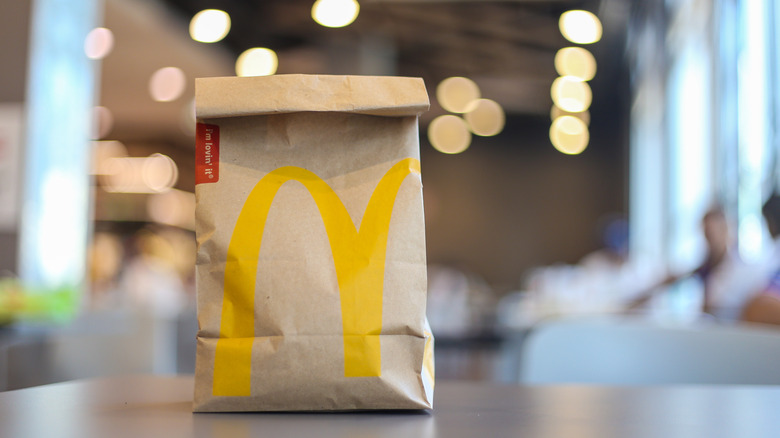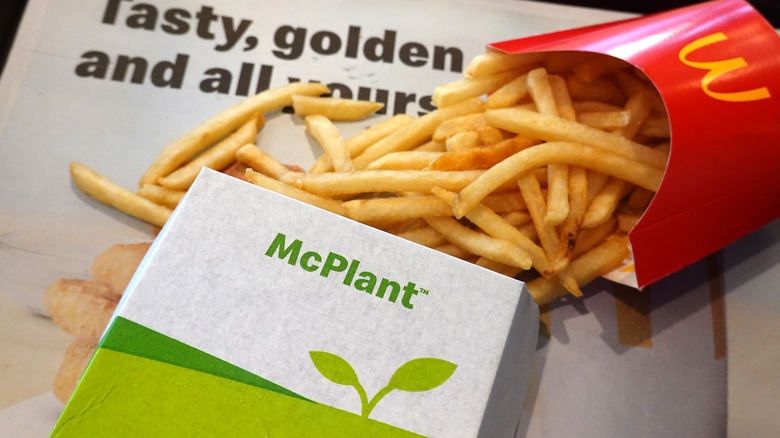The Reason McDonald's Has Stopped Serving Its Plant-Based Burger
Over the past year, it seemed that vegan alternatives to fast food burgers would become a new staple. Burger King, for example, introduced the Impossible Whopper. Soon after, McDonald's debuted the McPlant. As the company explained on its website, McDonald's would begin testing the McPlant in select American markets. In addition, the McPlant — with its Beyond Meat patty — met reasonable success in foreign markets like Denmark, the United Kingdom, and Austria. So, hopes were high.
Hopes, however, have been dashed. CNBC reported that despite signing up for a three-year partnership with Beyond Meat, McDonald's has concluded its McPlant tests as planned, without any further expansions announced. Peter Saleh, an analyst at financial services firm BTIG, told QSR Magazine in March that "Franchisee sentiment on the sales performance was underwhelming. Their assessment was that they don't see enough evidence to support a national rollout in the near future." At that point, franchises were only selling 20 McPlants per day, which was well short of the target of 40-60 McPlants per day.
Because of this, Beyond Meat's shares dropped by 6%, according to CNBC. The outlet also notes that this is part of a general drag on the company's valuation. Even though it has gained highly public partnerships like McDonald's, people are not buying its products in stores.
The McPlant failed in every way
By April, sales were so low that Peta felt compelled to order McPlants in bulk, per Bloomberg, despite reviews on both Eater and Business Insider praising the McPlant. Admittedly, Eater's framing was more that the burger was uninspiring, and Business Insider said the flavor came from everything other than the patty.
So, it didn't exactly wow. Restaurant Business News raised another issue — that many test sites were in rural areas while the demographic most interested in non-meat burgers was in urban communities. McDonald's argument is that for them to alter their kitchen setup, the product has to have a broad appeal.
The Takeout added that few people crave burgers made from alternative meat. The pitch is primarily for meat eaters who crave a meaty McDonald's. Moreover, since there is cheese on the McPlant, vegans won't want it either. So there wasn't a consumer base to become rapidly attached to the product. Once the novelty of it wore off, it became like every other gimmicky food offering: forgotten and unwanted.

